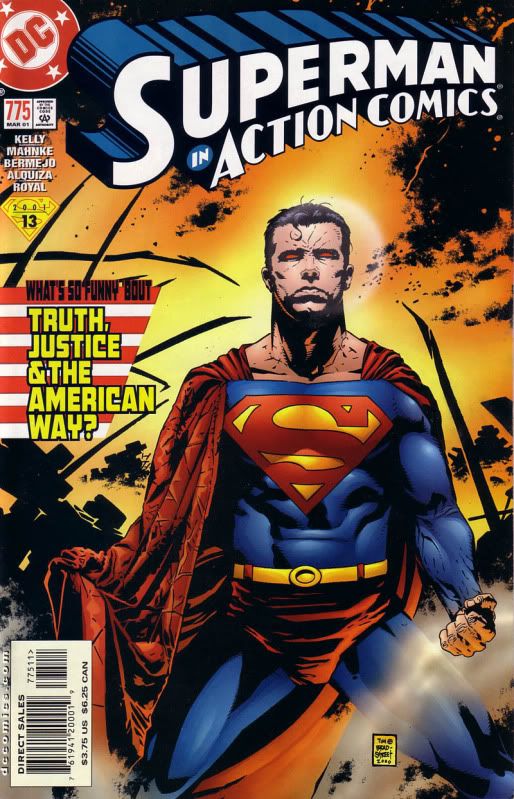
Joe Kelly, writer. Doug Mahnke and Lee Bermejo, pencillers.
DC Comics, 2001.
“Masks are for hiding. Capes are for play. ‘Villains’ don’t share their plans before they smoke you — ‘cept in campaign speeches. Or the pulpit or in front of the classroom. Reality is a mite bloodier than sitcoms or comics. The greys stretch out farther… Evil scientists. Bogey-men. Gimps in tights who want to ‘rule the world.’ From now on they’re yours — and the rest are ours to do with as we see fit.”
— Manchester Black (leader of The Elite) speaking to Superman
Despite some things you might have heard me say, or what you might have read in my diary that I keep under my pillow, I don’t really care about Superman in the greater context of things. I don’t spend a lot of time thinking about the Clark / Superman dichotomy, or what principles Superman embodies. If anything, I agree with Gary Groth’s 1988 essay that really Superman is a symbol of commercialism, exploitation, and the gangster morality of the comics industry. I love the first Christopher Reeve movie. And I like the character to the extent that he opens the door to stories in which, say, Jimmy Olsen uses a “Helmet of Hate” to turn Superman into a red devil with horns and then the horns crack open and tiny Supermen fly out, all drawn in an almost inappropriately naturalistic way by Curt Swan.
